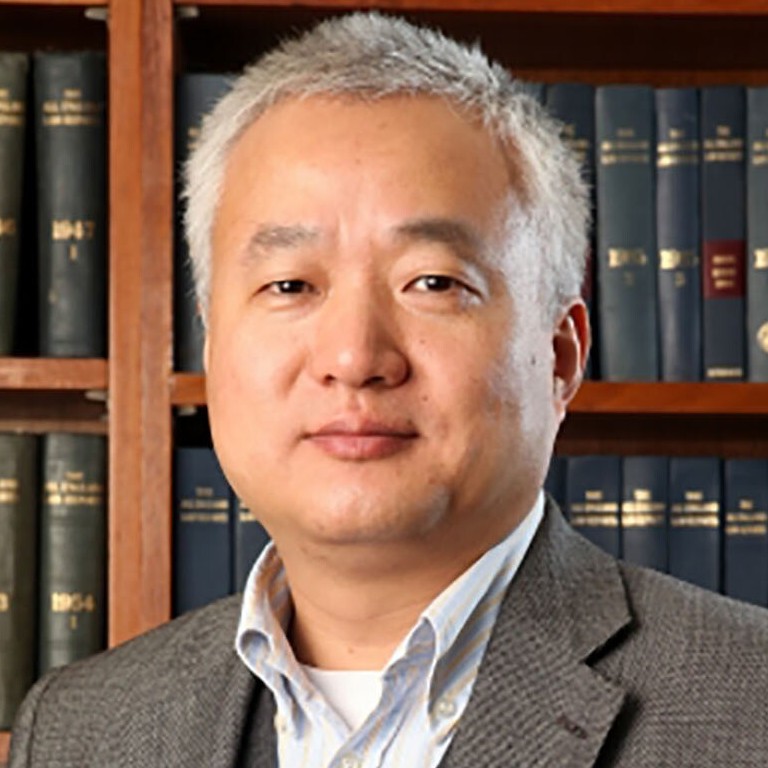
National security law: Hong Kong academics might choose self-censorship to protect themselves, law dean warns
- Experts ask when mainland Chinese authorities will take over cases and how three-judge court will work
- Lack of clarity in various aspects of new law has raised concerns in academic community
University of Hong Kong law dean Fu Hualin joined other legal experts in seeking clarification of various aspects of the law which was tailor-made for the city and targets acts of secession, subversion, terrorism and collusion with foreign forces.
The law, introduced last month, has sparked concerns over sweeping powers handed to police, the workings of a new Beijing office set up in the city, and the possible erosion of human rights.
Experts at the forum asked which national security cases might result in mainland authorities stepping in, whether there would be exemption for academic discussion, and how a panel of three judges would work when hearing a criminal trial under the law.

03:03
Hong Kong publishers resort to self-censorship under new security law
The two-and-a-half-hour session was organised by the Law Society at its office in Central and attended by solicitors.
Fu, a specialist in mainland Chinese criminal law, said the lack of clarity in various aspects of the legislation had raised concerns in the academic community.
Taking the offence of terrorism as an example, he said that while the law intended to ban a list of violent behaviours, scholars of the subject might fear being accused of incitement.
He asked: “To what extent can one talk about the morality of violence and terrorism in an academic sense?”
Hong Kong national security law official English version:
He feared that while these uncertainties persisted, professors, researchers and students would opt for self-censorship to stay safe, and it would take time for them to regain their confidence.
Another panellist, former director of public prosecutions Grenville Cross, had questions about the workings of the new court of three judges who would hear sensitive cases, doing away with the need for a jury.
He said the law did not spell out how a guilty verdict would be arrived at, whether the judges must make a unanimous decision or if a 2-to-1 outcome would suffice.
“If one dissents, should he or she give reasons?” asked Cross, who suggested that this was a matter for the chief justice to decide.
There were also ambiguities regarding the granting of bail and sentencing, he added.

Senior counsel Ronny Tong Ka-wah, an adviser to the city leader’s Executive Council, wanted to know the circumstances under which mainland authorities would take over national security cases.
Under the law, Beijing’s new Office for Safeguarding National Security in Hong Kong would step in for cases that involve “a foreign country or external elements”, concern a serious situation or relate to a “major and imminent threat”.
Hong Kong national security law full text
Tong did not think, for example, that every case involving a foreign element would fall under mainland jurisdiction. He felt that only those with “exceptional elements” would result in the mainland authorities taking over.
“I wish the National People’s Congress could elaborate as to what would warrant an intervention,” he said.
Pro-establishment heavyweight Maria Tam Wai-chu, a panellist, reiterated local courts had no power to scrutinise the new law passed by Beijing on June 30.

While Hong Kong’s courts were empowered to hear cases related to the law, she said it was a national law and the city’s mini-constitution, the Basic Law, did not empower the local courts to review national-level laws.
Some of the concerns raised at the forum also came up at the Legislative Council during a weekly meeting on Wednesday.
Responding to lawmakers’ questions, Chief Secretary Matthew Cheung Kin-chung said the chief executive had consulted the chief justice and the city’s Committee for Safeguarding National Security, before appointing six magistrates to hear cases two weeks ago.
So far only one of the six, Chief Magistrate So Wai-tak, has been named, when he was put in charge of the city’s first national security case.
Cheung did not answer questions about the right of Chief Executive Carrie Lam Cheng Yuet-ngor’s to reject the advice of the top judge when exercising her powers under the new law.

